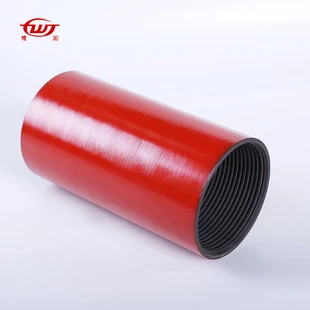Innovative Technologies for Efficient Pipe Mill Production and Design Solutions
The Evolution and Importance of Pipe Mills in Modern Industry
The pipe mill is a crucial facility in the manufacturing landscape, integral to the production of pipes used in various applications including, but not limited to, construction, oil and gas, and water supply. These mills are specialized in creating metal pipes, typically from steel, through processes that enhance their durability, strength, and utility.
Historical Context
The inception of pipe mills can be traced back to the industrial revolution when the demand for robust piping systems surged with the expansion of industries. Initially, pipes were manually fabricated, which limited production capacity and scalability. However, advancements in technology paved the way for more sophisticated manufacturing processes. The advent of electric welding, for instance, marked a significant transformation, allowing for the mass production of pipes with enhanced quality and efficiency.
Manufacturing Process
Modern pipe mills employ a combination of techniques to produce pipes that meet specific standards and requirements. The process generally begins with the selection of raw materials, primarily steel coils or sheets. These materials are then fed into the mill where they undergo cold rolling or hot rolling processes.
1. Forming The first step in the mill is to form the flat steel into a cylindrical shape. This is achieved through a series of rollers tailored to shape the metal gradually, ensuring uniform thickness throughout the length of the pipe. 2. Welding In the welding stage, the edges of the rolled steel are joined together to form a complete pipe. Electric resistance welding (ERW) and submerged arc welding (SAW) are commonly used techniques in this phase. The choice of welding method depends on the specifications of the pipe required.
3. Heat Treatment Post-welding, pipes often undergo heat treatment processes to enhance their mechanical properties. This step is vital for applications that involve high pressure or extreme temperatures.
4. Finishing The final stage involves cutting the pipes to specified lengths, followed by surface treatment to remove impurities and ensure resistance to corrosion. Quality checks are performed at various stages to meet stringent industry standards.
pipe mill

Applications of Pipe Mills
The products manufactured in pipe mills find widespread use across numerous sectors. In the construction industry, pipes are essential for structural applications and plumbing systems. In the oil and gas sector, they are integral to transporting materials safely over vast distances. Moreover, the utility sector relies on these pipes for water distribution, ensuring access to clean water and effective sewage systems.
The versatility of pipes produced by mills allows for a variety of specifications tailored to different environments. For instance, pipes used in marine applications may require additional coatings to withstand corrosion from saltwater.
The Future of Pipe Mills
As industries evolve, so too do the technologies and methods utilized in pipe mills. The introduction of automation and Industry 4.0 technologies is transforming operations, improving efficiency, and reducing human error. Using advanced analytics and IoT (Internet of Things) capabilities, manufacturers can monitor production processes in real-time, ensuring better quality control and optimized operations.
Additionally, sustainability is becoming an increasingly important focus. Pipe mills are now looking to minimize waste and improve energy efficiency in their processes. By adopting greener practices and exploring alternative materials, these facilities can reduce their environmental impact while meeting the growing demand for infrastructure globally.
Conclusion
In conclusion, pipe mills play a vital role in the industrial backbone of modern society. Their evolution, responsive to technological advancements and industry needs, underscores their importance in various essential sectors. As we look to the future, pipe mills will continue to be at the forefront of innovation, contributing significantly to infrastructural development while adhering to environmental stewardship. The ongoing advancements in manufacturing technology will further enhance their capabilities, ensuring they remain indispensable in an ever-changing industrial landscape.
-
Tubing Crossover - API Compatible, Custom Sizes, In StockNewsNov.10,2025
-
Tubing Coupling | High-Strength, Leak-Proof Steel CouplingsNewsNov.10,2025
-
Wholesale API Threading Casing Coupling | API 5CT, Fast ShipNewsNov.10,2025
-
Pup Joint Supplier | API Certified, Custom, Quick ShipNewsNov.10,2025
-
Pup Joint Manufacturers | Precision Machined, Fast DeliveryNewsNov.10,2025
-
Tubing Coupling | Precision Steel, Leak-Proof, Fast DeliveryNewsNov.03,2025







